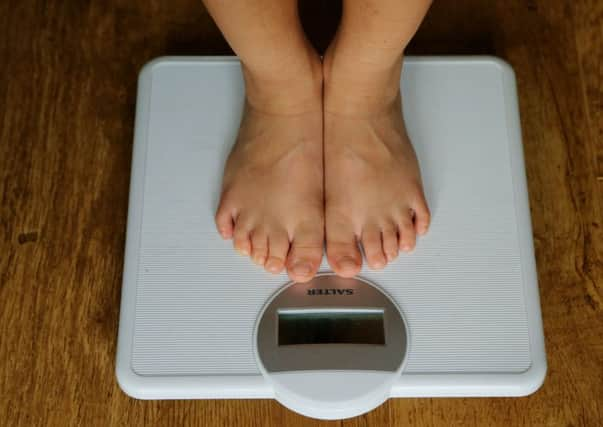Obesity plan '˜not enough' to cut sugar intake


Health professionals want the Prime Minister to rethink the plan and include restrictions on the marketing and promotions of products high in saturated fat, sugar and salt.
A major study funded by Public Health England (PHE) and the UK Food Standards Agency found that sugar accounts for 13 per cent of the daily calorie intake of children aged four to 10 - twice the five per cent recommended limit.
Advertisement
Hide AdAdvertisement
Hide AdThose aged 11-18 have daily diets made up of 15 per cent sugar - three times the recommended amount.
Meanwhile, adults aged 19 to 64 are also heavy consumers, with 12 per cent of their diets made up of sugar - the figures have remained more or less the same since 2008.
Graham MacGregor, a medical professor and chairman of Action on Sugar, said: “Theresa May must urgently rethink her pathetic childhood obesity plan that lacks restrictions on the marketing of, and promotions on, products high in saturated fat, sugar and salt and revert back with an evidenced-based robust strategy to effectively reduce levels of obesity and type 2 diabetes and tackle health inequalities which she promised the nation back in July.”
Professor Neena Modi, president of the Royal College of Paediatrics and Child Health, said overweight children are “highly likely” to be overweight or obese as adults, increasing the risk of heart disease, type 2 diabetes and some cancers.
Advertisement
Hide AdAdvertisement
Hide Ad“This is why we are surprised the long-awaited UK Government childhood obesity strategy did not include a number of recommendations aimed at protecting children, such as a ban on advertising junk food and limiting their sale around schools,” she said.
“We call for these measures to be reconsidered in order to safeguard the health and well-being of all UK children.”
A spokesman from the Obesity Health Alliance, a coalition of 30 health charities and royal colleges, called on policymakers to create an environment that makes it easier to make healthier choices.
“That’s why we strongly support the soft drinks industry levy and are calling on the Government to protect our children from junk food marketing on TV and online,” the spokesman said.
Advertisement
Hide AdAdvertisement
Hide AdAccording to Dr Alison Tedstone, chief nutritionist at PHE, the government agency is launching a programme to challenge the food industry to remove at least 20 per cent of the sugar in its products by 2020.
A spokesman for the Food and Drink Federation said food and drink producers are taking steps to help customers towards dietary goals, adding: “We need a national push involving all parties with a stake in improving public health to bring about positive change to whole diets.”
FRUIT TARGETS STILL BEING MISSED
There has been no change in consumption of fruit and vegetables in almost a decade, with those aged 11 to 18 managing just 2.8 portions per day on average.
Adults eat four portions, while there are no specific recommendations for young children.
Advertisement
Hide AdAdvertisement
Hide AdSaturated fat intake is also a cause for concern. Children aged four to 10 have diets in which 13 per cent of their daily calories come from saturated fat, compared with a target of less than 11 per cent.
The figure is 12.6 per cent for 11-18-year-olds and adults get 12.7 per cent of their energy from saturated fat.
The national survey was carried out among 1,288 adults and 1,258 children.